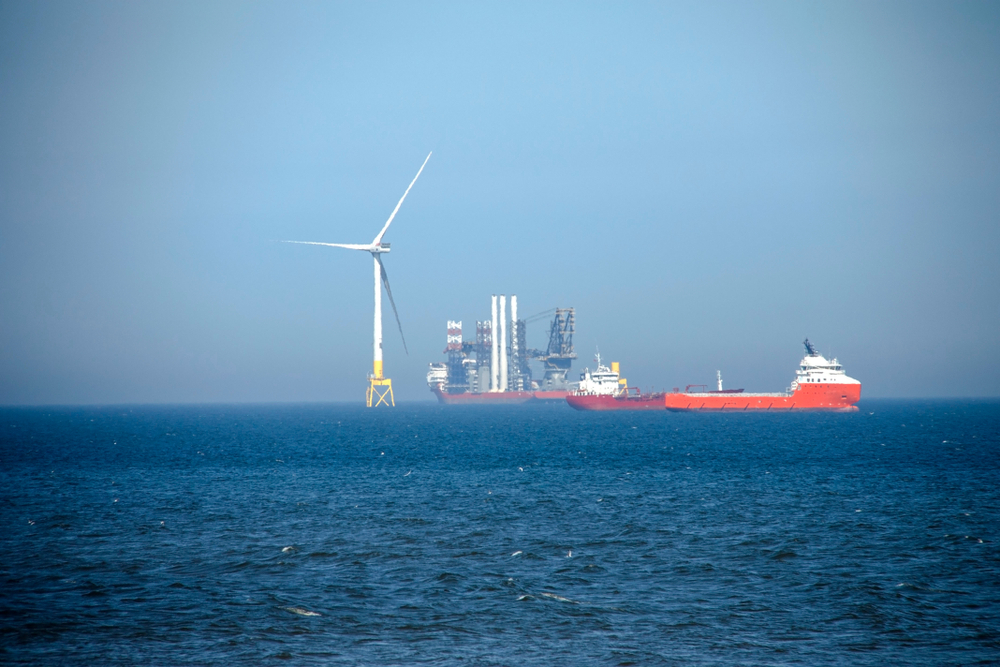Britain joins wind power plan for turbine islands in North Sea

Britain and other European countries will launch a wind-power revolution today with a pledged tenfold increase in electricity generation by 2050 from massive turbine “islands” built at sea.
Grant Shapps, the energy secretary, will attend a meeting in Ostend for talks with Belgium, Germany, France, Norway, the Netherlands, Denmark, Ireland and Luxembourg.
He will announce a plan for the world’s largest multi-use power line under the North Sea. The LionLink line, only the second of its kind in the world, will connect the UK and the Netherlands with offshore wind farms.
At the talks, energy ministers will agree to quadruple offshore wind power during the next five years, with plans to build the world’s largest network of new offshore wind farms generating electricity in the North Sea.
“In response to Russia’s aggression against Ukraine and attempts of energy blackmail against Europe, we will accelerate our efforts to reduce fossil fuel consumption as well as dependence on fossil fuel imports,” the ministers said in a draft communiqué.
Shapps added: “We are bolstering our energy security and sending a strong signal to Putin’s Russia that the days of his dominance over global power markets are well and truly over.”
Rob Jetten, the Dutch energy minister, said: “LionLink provides close to 2 gigawatts of electricity to both countries, enough to power two million households . . . this new connection further boosts energy security and energy independence in Europe.”
The talks will be chaired by Alexander De Croo, the Belgian prime minister, in the second meeting of its kind after a Brexit dispute with the European Commission had led to Britain being excluded last year.
European leaders and energy ministers will also discuss protecting offshore energy infrastructure from security threats and cyberattacks after warnings from western intelligence agencies that Russian ships have been carrying out covert reconnaissance operations in the North Sea and Atlantic.
“By combining our strengths and knowledge, we have the ambition to build the world’s largest energy plant in the North Sea,” De Croo said. “We need to make sure that this power arrives safely at our shores.”
Belgium, Denmark, Germany and the Netherlands, together with the UK, are planning to form a cluster of energy “islands” composed of huge wind farms, and Germany will begin pilot projects to produce hydrogen at offshore facilities using renewable energy.
Apart from Luxembourg, which has energy-sharing agreements with Belgium and the Netherlands, the countries have a combined northern sea coastline of more than 110,000 miles, including the Atlantic and North Sea.





